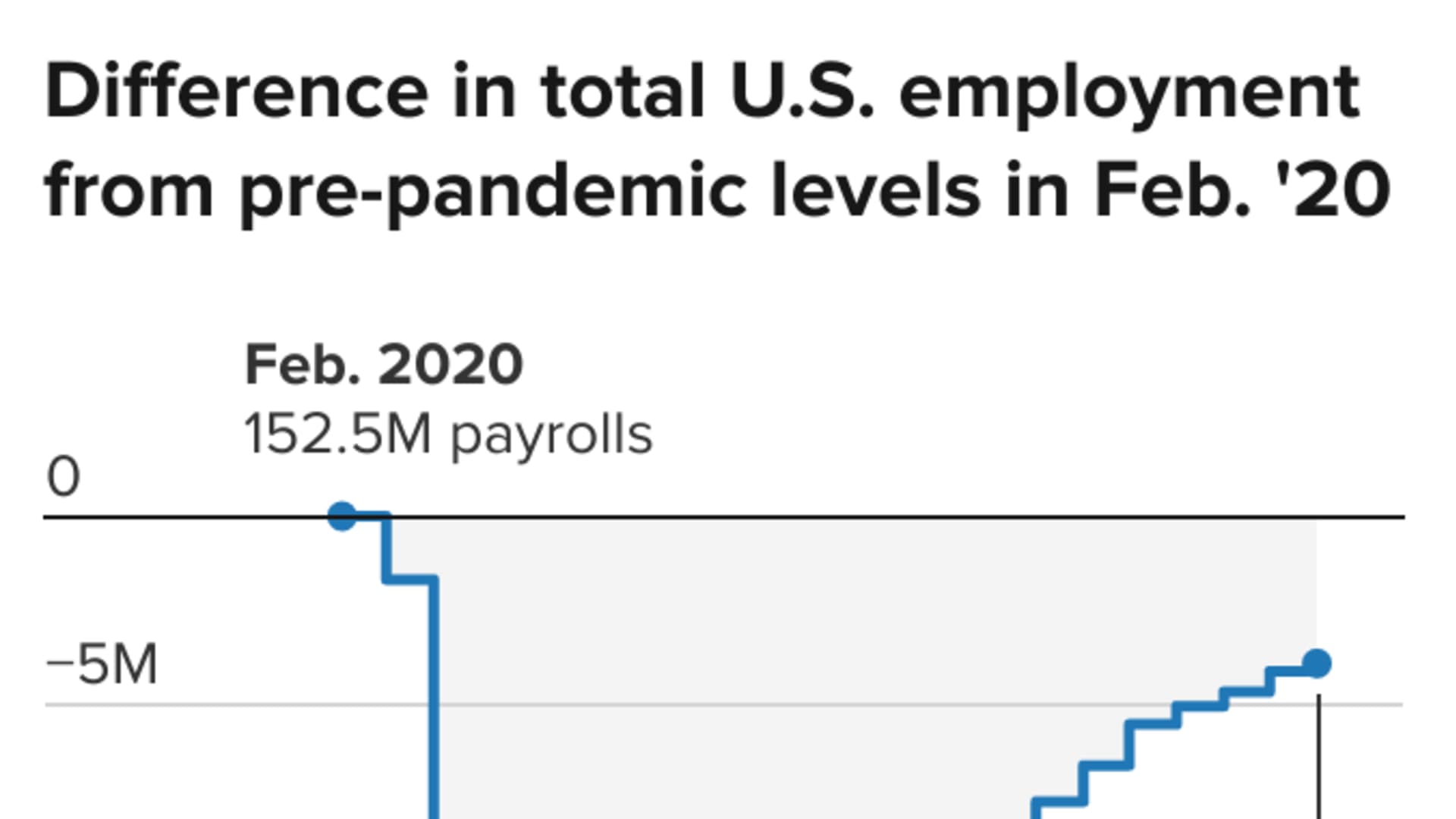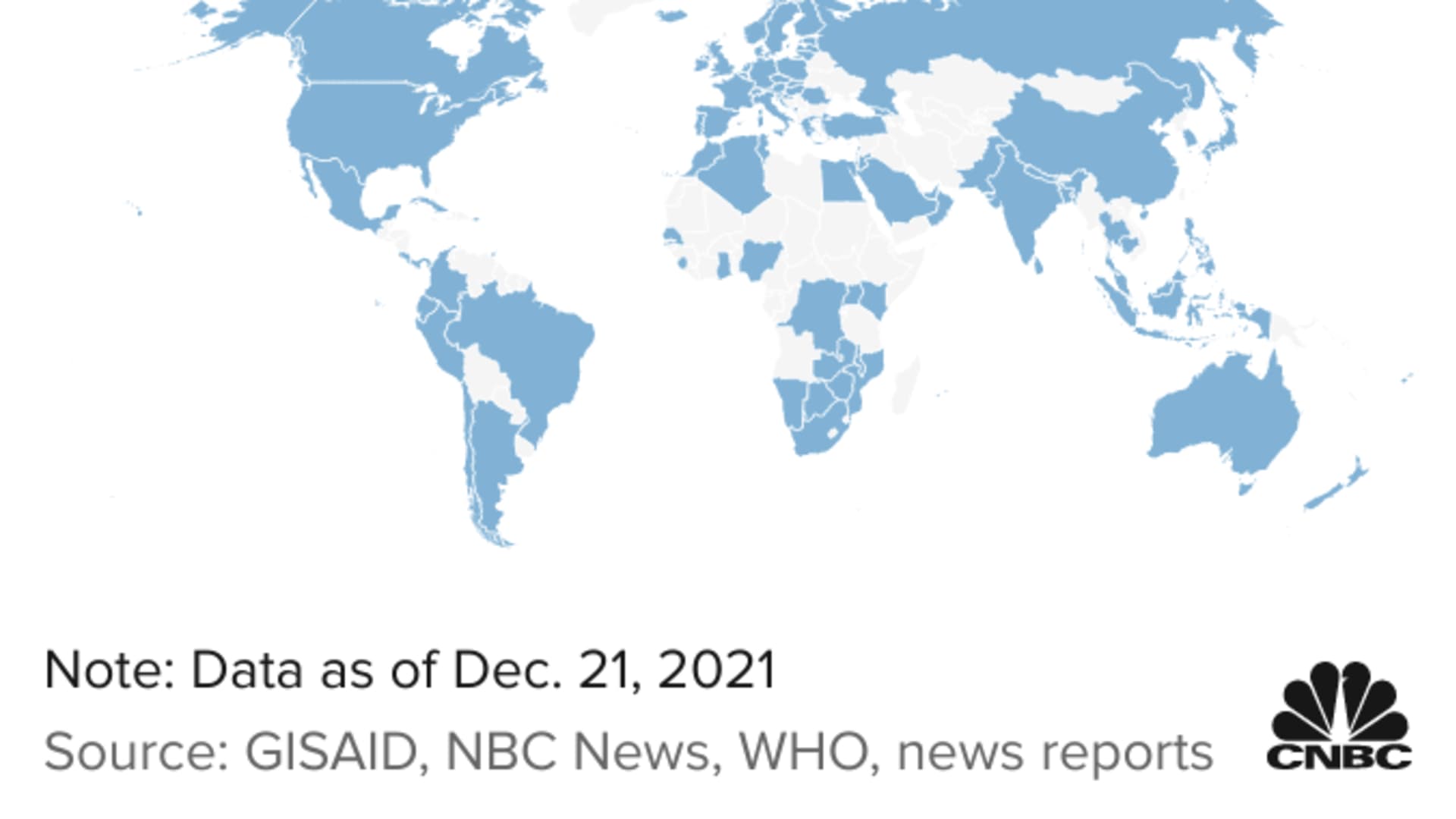
- The governors of Florida, Iowa, Kansas and Tennessee signed laws in recent weeks that allow workers to collect unemployment benefits if fired for refusing to comply with a Covid-19 vaccine mandate.
- Lawmakers in other Republican-led statehouses may do the same next year.
- The Biden administration's national vaccine mandate for large employers is being challenged in court.
Some states are making it easier for Americans to collect unemployment benefits if they're fired for being unvaccinated against Covid-19.
The governors of Florida, Iowa, Kansas and Tennessee signed laws in recent weeks that change eligibility rules for jobless benefits. Workers in these states who lose a job for refusing to comply with a workplace Covid-19 vaccine mandate now qualify for benefits.
That runs counter to typical state rules, which generally disallow aid if workers are fired for failing to adhere to certain workplace policies, whether related to vaccine requirements or mandatory drug tests, for example, according to labor experts.
Get a weekly recap of the latest San Francisco Bay Area housing news. Sign up for NBC Bay Area’s Housing Deconstructed newsletter.

Three of the states (Florida, Iowa and Tennessee) are helmed by Republican governors. Kansas' governor is a Democrat.
Republican lawmakers in other statehouses, including Arkansas, New York and Wisconsin, have introduced similar bills since September, according to a National Conference of State Legislatures database.
"I wouldn't be surprised if other ones do it, especially when the legislatures get back in session [next year]," according to Andrew Stettner, a senior fellow at The Century Foundation, a progressive think tank.

The move comes as many U.S. employers are weighing a workplace vaccine mandate and as fears over the omicron virus variant grow.
Money Report
About 57% of large businesses require or plan to require Covid-19 vaccinations for employees, according to a survey published Tuesday by Willis Towers Watson, a consulting firm. However, more than half of those will only move forward if a Biden administration vaccine rule takes effect.
The Biden administration rule requires businesses with at least 100 employees to ensure staff are vaccinated or submit a negative Covid test on a weekly basis. The Occupational Safety and Health Administration suspended enforcement and implementation of the measure after a federal appeals court ordered a pause pending a review.

The rule was meant to take effect Jan. 4. President Joe Biden asked businesses on Thursday to voluntarily proceed with the requirements.
"Simply put, delaying the standard would likely cost many lives per day, in addition to large numbers of hospitalizations, other serious health effects and tremendous expenses," the Justice Department said in a court filing. "That is a confluence of harms of the highest order."
Some Republican officials seeking to overturn the policy argue it infringes on personal liberties.
"I believe the vaccine is the best defense against Covid-19 and we've provided Iowans with the information they need to determine what's best for themselves and their families, but no Iowan should be forced to lose their job or livelihood over the Covid-19 vaccine," Iowa Gov. Kim Reynolds said Oct. 29 after signing the legislation amending unemployment rules.
Aside from loosening rules to collect benefits, the new state laws also generally make it easier for employees to qualify for certain exemptions from workplace vaccine mandates.
More from Personal Finance:
Long-term unemployment fell again but at slowest pace since April
How to get the free at-home Covid tests promised by White House
More than $87 billion in federal benefits siphoned from unemployment system
States generally require businesses to allow exemptions from certain workplace rules for medical or religious reasons.
Workers who qualify for an exemption have legal protection from being fired for noncompliance with a vaccine mandate.
Those who don't qualify for an exemption and are fired are now eligible for income support via unemployment benefits.

The policy seems to run contrary to states' actions over the summer relative to unemployment benefits, according to Alexa Tapia, the unemployment insurance campaign coordinator for the National Employment Law Project.
Florida, Iowa and Tennessee were among 26 states that moved to cut off federal unemployment benefits a few months ahead of their official Labor Day expiration. They argued the benefits were contributing to a labor shortage by offering an incentive for recipients not to look for work. (Data in subsequent months showed that largely wasn't the case.)
The new unemployment laws are sending the opposite message, by offering a financial incentive to people who lose their jobs due to a vaccine requirement, Tapia said.






